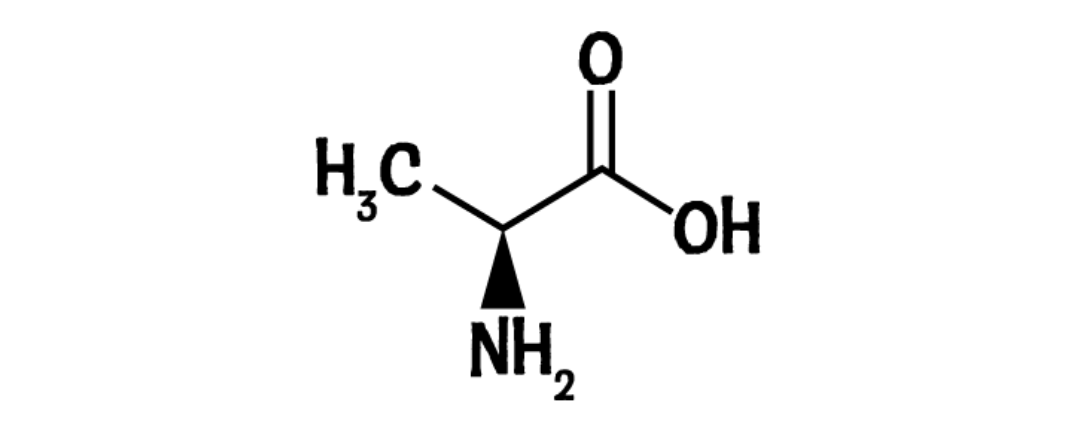
L-ALANINE
Alanine is a non-essential amino acid, which means that the body can produce it itself. It plays an important role in various physiological processes and is a crucial building block of proteins. Alanine comes in two forms: L-alanine, which is used in the synthesis of proteins, and D-alanine, which is mainly found in bacteria and plays a role in the cell wall structure.
Alanine supports the immune system by contributing to the production of antibodies. Antibodies are proteins that fight infections by neutralizing pathogens such as bacteria and viruses. As a result, alanine contributes to a robust immune system and better overall health.
Alanine plays a key role in energy production, especially during intensive physical activities. It can be converted into glucose by the body through gluconeogenesis, a process in which non-carbohydrate sources are converted into glucose. This helps maintain blood sugar levels and provides a constant source of energy for the muscles during prolonged exertion.
Alanine is involved in the glucose-alanine cycle, a process that helps maintain blood sugar levels during periods of fasting or intensive physical activity. This process ensures that the muscles get enough energy without the blood sugar level becoming too low.
Essential amino acid
Cannot be produced by the body and must be obtained through food or supplements
Non-Essential amino acid
Can be produced by the body itself in limited volumes









